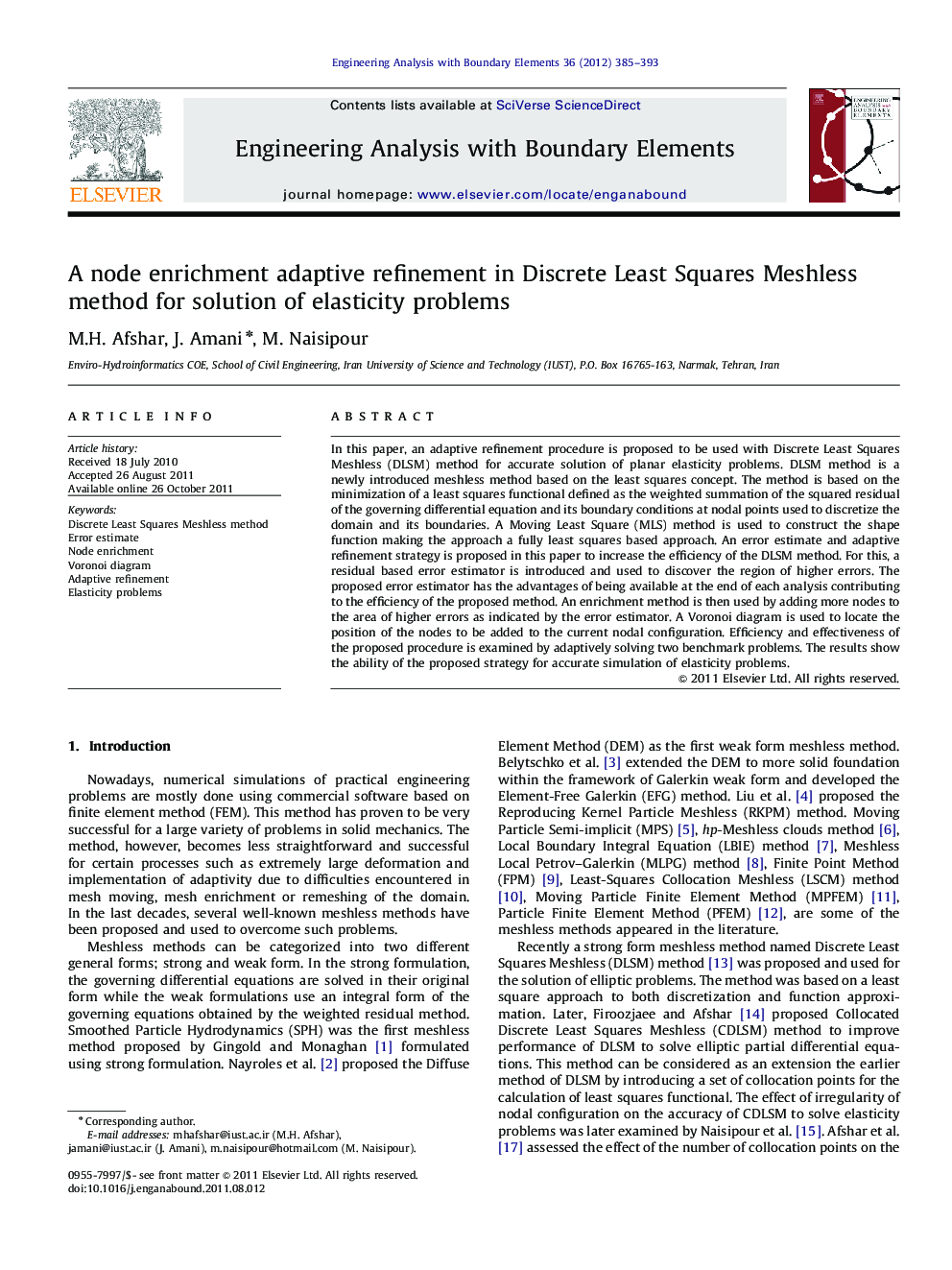| Article ID | Journal | Published Year | Pages | File Type |
|---|---|---|---|---|
| 512722 | Engineering Analysis with Boundary Elements | 2012 | 9 Pages |
In this paper, an adaptive refinement procedure is proposed to be used with Discrete Least Squares Meshless (DLSM) method for accurate solution of planar elasticity problems. DLSM method is a newly introduced meshless method based on the least squares concept. The method is based on the minimization of a least squares functional defined as the weighted summation of the squared residual of the governing differential equation and its boundary conditions at nodal points used to discretize the domain and its boundaries. A Moving Least Square (MLS) method is used to construct the shape function making the approach a fully least squares based approach. An error estimate and adaptive refinement strategy is proposed in this paper to increase the efficiency of the DLSM method. For this, a residual based error estimator is introduced and used to discover the region of higher errors. The proposed error estimator has the advantages of being available at the end of each analysis contributing to the efficiency of the proposed method. An enrichment method is then used by adding more nodes to the area of higher errors as indicated by the error estimator. A Voronoi diagram is used to locate the position of the nodes to be added to the current nodal configuration. Efficiency and effectiveness of the proposed procedure is examined by adaptively solving two benchmark problems. The results show the ability of the proposed strategy for accurate simulation of elasticity problems.
► Multistage node enrichment adaptive refinement is proposed for solution of elasticity problems. ► The least squares functional is used to identify zones of larger numerical errors. ► A Moving Least Square (MLS) method is used to construct the shape functions. ► An enrichment method is used by adding more nodes to the indicated higher error area. ► A Voronoi diagram is used to locate the position of the added nodes to the current nodal configuration.
